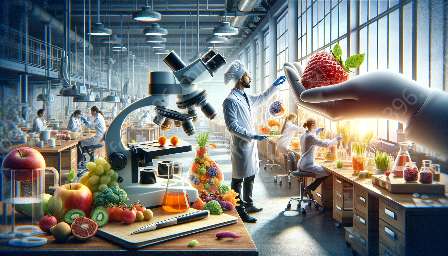Food engineering is a fascinating field that encompasses the application of engineering principles to the production, processing, and preservation of food. It plays a crucial role in ensuring the safety, quality, and sustainability of the food supply. In this article, we'll delve into the world of food engineering, exploring its close relationship with food analysis and culinology, and the significant impact these disciplines have on the food industry.
Food Engineering: Enhancing Food Production and Preservation
Food engineering involves the use of engineering principles and techniques to optimize the production, processing, and preservation of food. It encompasses various aspects including food safety, quality control, and packaging technology. From the design of food processing equipment to the development of efficient production processes, food engineers work to ensure that food products are safe, nutritious, and palatable.
Food Analysis: Understanding and Evaluating Food Properties
Food analysis is the scientific study of food components and properties. It involves the use of analytical techniques to assess the nutritional content, sensory characteristics, and safety of food products. Through advanced analytical methods such as chromatography, spectroscopy, and microscopy, food scientists and analysts are able to identify and quantify the various components of food, ranging from macronutrients to food additives and contaminants.
Culinology: The Art and Science of Culinary Innovation
Culinology, a blend of culinary arts and food science, focuses on the creative and innovative aspects of food product development. Culinologists have a deep understanding of food science and technology, combined with culinary expertise, to create new and exciting food products. They play a crucial role in developing recipes, designing flavor profiles, and optimizing the sensory attributes of food products, while also considering factors such as shelf life and production efficiency.
The Interplay of Food Engineering, Analysis, and Culinology
The intersection of food engineering, food analysis, and culinology is essential for the development of safe, high-quality, and innovative food products. Food engineers work to design efficient production processes and packaging solutions, while food analysts provide valuable insights into the nutritional content and safety of food products. Culinologists add their creative touch, combining scientific knowledge with culinary skills to develop unique and appealing food offerings.
Conclusion
Food engineering, food analysis, and culinology each play a pivotal role in shaping the contemporary food industry. By integrating engineering principles, scientific analysis, and culinary creativity, professionals in these fields contribute to the development of sustainable, safe, and enticing food products. As technology and consumer preferences continue to evolve, the collaboration between these disciplines will drive further innovation and advancement within the food industry.

